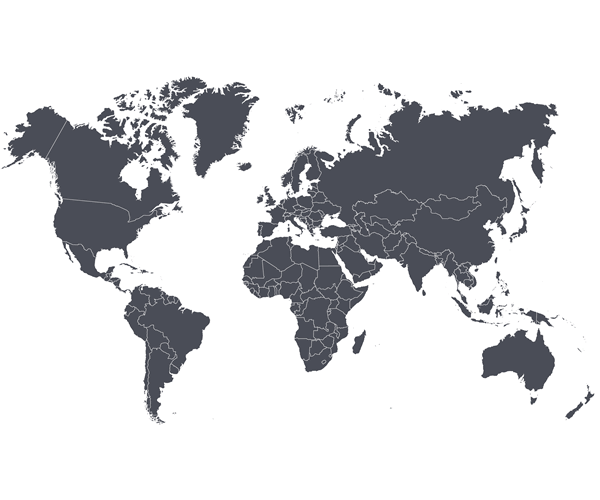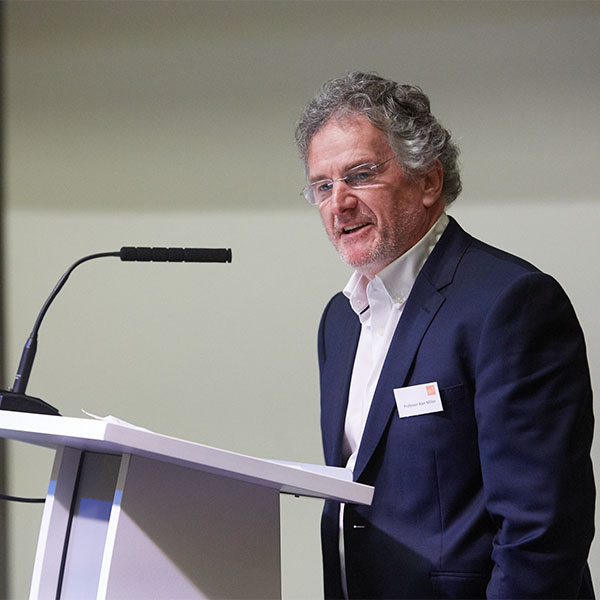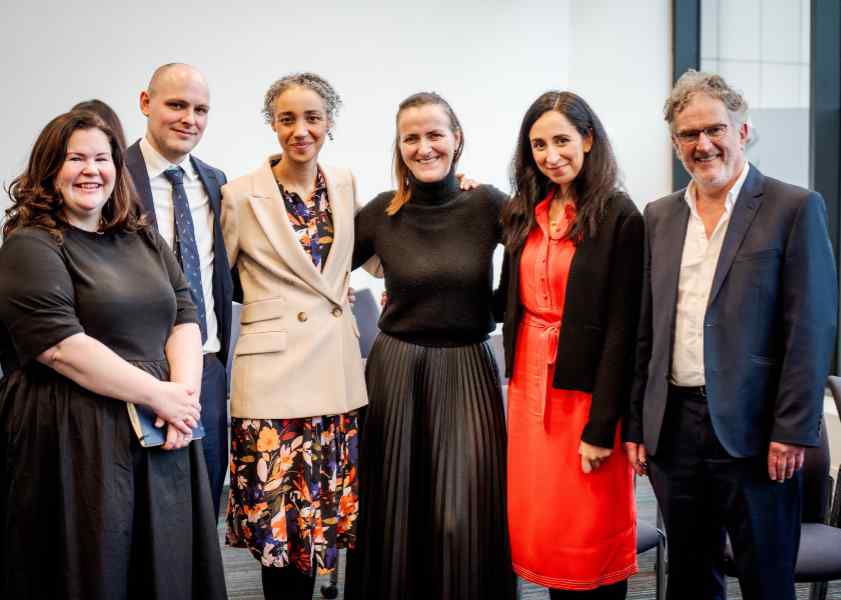LLM/PgDip Human Rights Law with a specialisation in Medical Law
ApplyKey facts
- Start date: September
- Study mode and duration: LLM: 12 months full-time; 24 months part-time
PgDip: 9 months full-time; 21 months part-time Scholarships: EU Engagement Scholarships worth £10,000 available to applicants from EU countries
Study with us
- pursue a unique opportunity to combine the study of human rights with medical law
- engage with an eminent and inclusive team of leading academics, policy and legal practitioners at the forefront of human rights leadership in Scotland and globally
- focus on how human rights law shapes, and is shaped by, real-life contexts
- study with students from a range of academic disciplines and professional backgrounds to build expertise in human rights law at UK, European and international levels
- develop expertise both through academic work and by participating in activities within the University and the Scottish human rights community
- benefit from flexible options for your end-of-year project: an enhanced research proposal, professional internship, a professional project or a traditional dissertation.
Why this course?
As human rights law has increasingly influenced the delivery of health care and public health policy, the interaction between these fields has become increasingly significant. Human rights which impact directly on the medical law field range from the right to be free from inhuman and degrading treatment, to freedom of expression, respect for private and family life and the right to the highest attainable of physical and mental health. Globally, the COVID-19 pandemic starkly illustrated a lack of equity and discrimination within and between countries. Health-related impacts on individuals also arise in diverse contexts beyond healthcare and public health, such as migration and climate change.
On this programme you’ll have the chance to study a wide range of topics, relating to, for example, beginning and end of life issues and conscientious objection in national law, and governance of emergencies such as pandemics and plastics pollution in international law.
The course offers flexibility to tailor module choices according to your own interests and career aspirations.
Joining Strathclyde’s long-standing, esteemed human rights programme provides an opportunity to develop deep knowledge and skills alongside an approachable team of academics, legal practitioners and policy experts in human rights, health and medical law and ethics.

What you’ll study
The LLM or Postgraduate Diploma in Human Rights Law with a specialisation in Medical Law may be completed over one year (full-time) or over two years (part-time).
The LLM is awarded on successful completion of six modules (two compulsory for the specialisation in Medical Law and four optional from a list of human rights modules) and on completion of an end-of-year summer project. The summer project takes the form of a dissertation or enhanced research project, or there will also be an opportunity to apply for a competitive professional project or professional internship.
The Postgraduate Diploma in Human Rights Law with a specialisation in Medical Law is awarded on successful completion of six modules (two compulsory for the specialisation in Medical Law and four optional from a list of human rights modules).
Work placement
There will be an opportunity to take the summer project on the LLM as a work placement, either as an internship or as a professional project. Placement opportunities will be subject to a competitive application process.
LLM Human Rights Law Dissertation prize
Since 2014, a prize has been awarded for the highest graded dissertation by a student on the LLM in Human Rights Law, generously sponsored by Balfour + Manson.
Balfour+Manson is a leading, medium-sized law firm based in Edinburgh and Aberdeen, delivering legal services in the areas of dispute resolution, commercial and charities, and private client and property work. Balfour+Manson is regarded as one of the leading firms in Scotland in relation to public law, judicial review and human rights. Consistently, they are ranked highly by legal directories, and were the only law firm ranked Band 1 for Civil Liberties and Human Rights in Scotland by Chambers and Partners 2020.
The prize is awarded at Strathclyde Law School’s annual prize-giving event.
Facilities
Our library has a wide range of law reports, legislation, serials and monographs. It also has duplicate sets of key law report series, houses extensive collections in government publications and other related areas.
You'll have access to a wide range of electronic information sources which can be accessed from anywhere, including all the major legal databases.
Medical Law
In this module students will be facilitated, over the course of eight interconnected seminars, to explore fundamental concepts and key issues in medical law and ethics. The class has a strong focus on ethical ideas, and a particular focus on law in the United Kingdom. Seminar topics may alter from year to year to reflect issues that are particularly topical or controversial. In certain seminars – such as those on abortion law, ‘assisted dying’, and conscientious objection – human rights arguments and implications will be considered.
Global Health, Rights & Development (Law School)
This module will focus on the interactions between international law and public health, with a particular focus on the 'right to health' as a fundamental human right which lies at the core of what may be referred to as 'global health law.' In this class, and against the backdrop of ongoing geopolitical challenges, including threats to the established multilateral order, we will explore the legal frameworks, policies, and other considerations that shape global health governance.
Through debate, practical exercises and discussion, students will gain advanced knowledge and expertise in this important area of international law and practice.
International Human Rights Law
Human rights protection is a global concern. This module examines civil and political rights along with economic, social and cultural rights, and assesses the range of international monitoring and supervision regimes. Topics covered include the major international treaties and bodies. It also looks at the challenges to human rights in transitional societies as well as the right to self-determination.
Human Rights Protection in the UK
The Human Rights Act 1998 was a major constitutional development in the UK. This module examine the ongoing transformation in UK legal cultures by exploring the commitment to human rights protection in the UK, and the resulting impact on constitutional principles and institutions. The module explores current human rights issues, drawing on a range of case-law, legal and theoretical literature, governmental reports and NGO accounts.
Human Rights & Digital Technologies
A shift towards automated decision-making and algorithmic regulation generates significant concerns for the protection of human rights. At the same time, there is a pressing need to study these technologies’ beneficent effects on human rights. This module aims to assess the suitability and relevance of existing human rights law in the digital age, and to evaluate conceptual, cross-disciplinary frameworks, which analyse how digital technologies shape developments in human rights law.
International Migration Law
International migration is a global phenomenon that raises multiple complex issues. This module examines the international legal framework governing international migration. Topics include protection of migrant workers, international refugee protection, the EU asylum policy, and internal displacement.
European Human Rights Law
The European Convention on Human Rights is the most influential regional human rights treaty. This module looks at interpretation and enforcement of the Convention. It examines the institutions within the Council of Europe, analyses case-law on substantive guarantees in areas such as protection of life, freedom from inhuman and degrading treatment, privacy and freedom of expression, considers thematic issues, and explores challenges facing the ECHR system.
Business and Human Rights
This module examines the role of business entities as global actors and the identification of the legal challenges that business presents for the international legal system. Gross human rights abuses have been clearly documented by various NGOs around the world and range from murder to the violation of socio-economic rights and environmental damage. The quest for corporate accountability for human rights violations has been the focal point for the ‘business and human rights’ movement, which gives rise to crucial questions about what business responsibility to protect human rights consists of, who should monitor conduct, and how rights holders can access justice.
Learning & teaching
The course is taught through 2 hour long, face-to-face seminars. The face-to-face seminars will normally be held during daytime hours, up to 6pm.
Full-time students normally take three modules per semester, and part-time students normally take three modules over two semesters. Alternative patterns can be discussed with the Programme Leader during Induction Week.
Although coordinated by a module leader, the seminars will be student-led and interactive.
Assessment
Modules will be assessed by a mixture of written exams, presentations and coursework comprising, for example, legal briefing papers, research essays and literature reviews.
Pre-Masters preparation course
The Pre-Masters Programme is a preparation course held at the University of Strathclyde International Study Centre, for international students (non-UK/Ireland) who do not meet the academic entry requirements for a Masters degree at University of Strathclyde.
Upon successful completion, you'll be able to progress to this degree course at the University of Strathclyde.
Entry requirements
| Academic requirements | A first or upper second-class Honours degree in any discipline (some law content recommended). Entry may be possible with other qualifications, especially where the applicant’s work experience is relevant to the course. Please note: a Law degree is not a prerequisite for entry to this course |
|---|---|
| English Language Requirements | Please check our English requirements before making your application. |
Our students
_(1).jpg)
Aidan Fisher
With support from the Strathclyde Law School, I was able to attend the Nelson Mandela World Human Rights Moot in Geneva. Seeing so many legal practitioners dedicated to doing good in the world convinced me that I could as well. It gave me an insight into other career paths beyond becoming a solicitor and beyond our domestic jurisdiction.

Brian Dan
Strathclyde’s human rights programme provides an opportunity to develop deep knowledge and skills alongside an approachable team of academics, stellar legal practitioners, and policy experts.

Robyn Conlan
The main challenge for me was the jump between undergraduate and post-graduate workload. However, I believe if you remain organised from the beginning, the workload is completely manageable. Also, when you are studying an area of law you are interested in, it is half the battle!

Helen Vaupel-Schwittay
Looking back now at the opportunities I've had and the work experience I've gained by networking with lecturers and being open to opportunities, I would have never imagined myself here when I first started the course a year ago!

Sayali Walavalkar
While studying at Strathclyde for my LLM, I had more opportunities than I would have expected as a student.
How to become a lawyer
There are different routes to a career in law. The choices you make now can affect the steps you would need to take to achieve your desired career in law. Here we explore the process of becoming a lawyer in Scotland and look at the different roles available within the law profession.


At Strathclyde, we’ve been teaching human rights at postgraduate level for over 20 years. It’s a privilege to be part of such a large, diverse, passionate and influential community of colleagues and alumni.
Programme Leader
Fees & funding
All fees quoted are for full-time courses and per academic year unless stated otherwise.
Note: (If not otherwise indicated, non-graduating/modular fees will normally be charged at a pro-rata % of the equivalent full-time fee, based on the number of credits enrolled in each year.)
Fees may be subject to updates to maintain accuracy. Tuition fees will be notified in your offer letter.
All fees are in £ sterling, unless otherwise stated, and may be subject to revision.
Annual revision of fees
Students on programmes of study of more than one year (or studying standalone modules) should be aware that the majority of fees will increase annually. The University will take a range of factors into account, including, but not limited to, UK inflation, changes in delivery costs and changes in Scottish and/or UK Government funding. Changes in fees will be published on the University website in October each year for the following year of study and any annual increase will be capped at a maximum of 10% per year.
| Scotland | LLM:
PgDip
|
|---|---|
| England, Wales & Northern Ireland | LLM:
PgDip
|
| Republic of Ireland |
If you are an Irish citizen and have been ordinary resident in the Republic of Ireland for the three years prior to the relevant date, and will be coming to Scotland for Educational purposes only, you will meet the criteria of England, Wales & Northern Ireland fee status. For more information and advice on tuition fee status, you can visit the UKCISA - International student advice and guidance - Scotland: fee status webpage. Find out more about the University of Strathclyde's fee assessments process. |
| International | LLM:
PgDip
Students are advised to research funding their course well in advance of commencing their studies. |
| Additional costs | International students may have associated visa and immigration costs. Please see student visa guidance for more information. |
| Available scholarships | Take a look at our scholarships search for funding opportunities. |
Please note: All fees shown are annual and may be subject to an increase each year. Find out more about fees.
How can I fund my course?
Scottish postgraduate students
Scottish postgraduate students may be able to apply for support from the Student Awards Agency Scotland (SAAS). The support is in the form of a tuition fee loan and for eligible students, a living cost loan. Find out more about the support and how to apply.
Don’t forget to check our scholarship search for more help with fees and funding.
Students coming from England
Students ordinarily resident in England may be to apply for postgraduate support from Student Finance England. The support is a loan of up to £10,280 which can be used for both tuition fees and living costs. Find out more about the support and how to apply.
Don’t forget to check our scholarship search for more help with fees and funding.
Students coming from Wales
Students ordinarily resident in Wales may be to apply for postgraduate support from Student Finance Wales. The support is a loan of up to £10,280 which can be used for both tuition fees and living costs. Find out more about the support and how to apply.
Don’t forget to check our scholarship search for more help with fees and funding.
Students coming from Northern Ireland
Postgraduate students who are ordinarily resident in Northern Ireland may be able to apply for support from Student Finance Northern Ireland. The support is a tuition fee loan of up to £5,500. Find out more about the support and how to apply.
Don’t forget to check our scholarship search for more help with fees and funding.
International students
We've a large range of scholarships available to help you fund your studies. Check our scholarship search for more help with fees and funding.
Law Postgraduate Community Bursary
The Faculty of Humanities & Social Sciences is offering a £700 fee reduction for ten applicants to the LLM Criminal Justice & Penal Change, LLM Human Rights Law and LLM Mediation & Conflict Resolution degree programmes who are working at any third sector/NGO organisation in the field of criminal justice and penal change, human rights or conflict resolution.
Faculty of Humanities & Social Sciences Scholarships
EU Engagement Scholarships are available to EU applicants who would have previously been eligible for Home (Scottish/EU) fee status.
Careers
We work closely with the University's Careers Service. They offer advice and guidance on career planning and looking for and applying for jobs. In addition, they administer and publicise graduate and work experience opportunities.
Our graduates can, and have progressed to research studies such as MPhil and PhD in Human Rights Law leading to an academic career.
Students may also go on to work with international non-governmental organisations in the area of human rights advocacy, practice and promotion.
The qualification is also relevant to careers in international human rights organisations, like UN agencies for example.
After graduating, you will have the opportunity to join a LinkedIn group with other former students of the programme.
Where are they now?
Job titles include:
- solicitor
- researcher
- policy officer
- advocacy officer
- outreach officer
- judicial assistant
Employers include:
- law firms
- law centres
- national human rights institutions
- international non-governmental organisations
- Scottish and UK advocacy organisations
Chat to a student ambassador
If you want to know more about what it’s like to be a Humanities & Social Sciences student at the University of Strathclyde, a selection of our current students are here to help!
Our Unibuddy ambassadors can answer all the questions you might have about courses and studying at Strathclyde, along with offering insight into their experiences of life in Glasgow and Scotland.
Our experts
Strathclyde Law School is renowned for its research and policy expertise across a wide range of human rights areas. These include national human rights incorporation, the concept of human dignity in rights interpretation, human rights and social justice, human rights dimensions of international public law, international and regional migration law, and UK and Scottish constitutional law, children’s human rights, women’s human rights, human rights and technology, and human rights and environmental governance.
Visiting Professor in Human Rights Law, Kavita Chetty
Ms Chetty is a foremost human rights practitioner in Scotland with extensive national and international experience. From 2015-2022, she was Head of Strategy and Legal at the Scottish Human Rights Commission, and since 2022 is Deputy Director Human Rights at the Scottish Government.
Our university has a collective mission of making a socially progressive and positive impact on society and this is a truly wonderful appointment. We are privileged that Professor Chetty has joined us and we’re excited to work together in the coming years. - Dr Elaine Webster, Programme Leader

International students
We've a thriving international community with students coming here to study from over 140 countries across the world. Find out all you need to know about studying in Glasgow at Strathclyde and hear from students about their experiences.

Apply
Start date: Sep 2025
Human Rights Law with a specialisation in Medical Law
Start date: Sep 2025
Human Rights Law with a specialisation in Medical Law
Start date: Sep 2025
Human Rights Law with a specialisation in Medical Law
Start date: Sep 2025
Human Rights Law with a specialisation in Medical Law

Our recommendations are challenging, ambitious and will need continued bold leadership to implement. It would be by far the biggest step taken in Scotland’s human rights journey.
Glasgow is Scotland's biggest & most cosmopolitan city
Our campus is based right in the very heart of Glasgow. We're in the city centre, next to the Merchant City, both of which are great locations for sightseeing, shopping and socialising alongside your studies.
Contact us
Prospective student enquiries
Contact a member of our team on LiveChat between 10am and 4pm (GMT)
Telephone: +44 (0) 141 444 8600
Have you considered?
We've a range of postgraduate taught and Masters courses similar to this one which may also be of interest.


